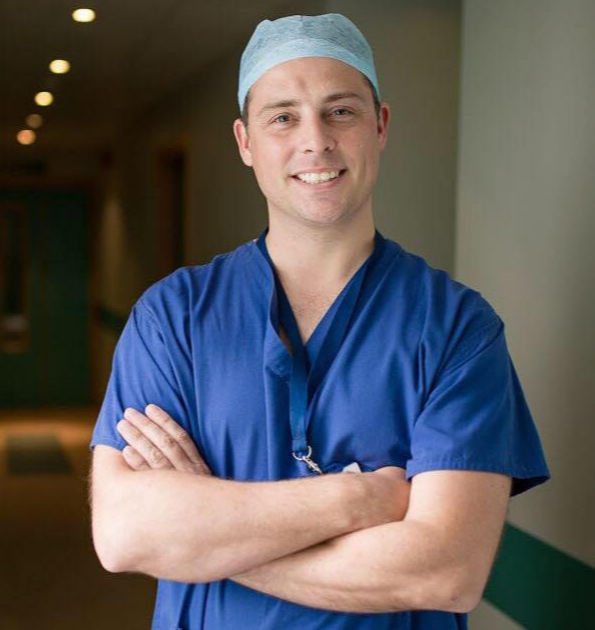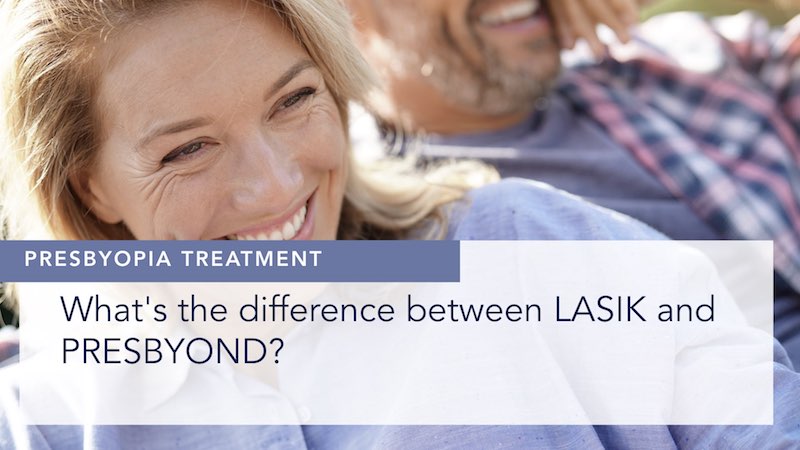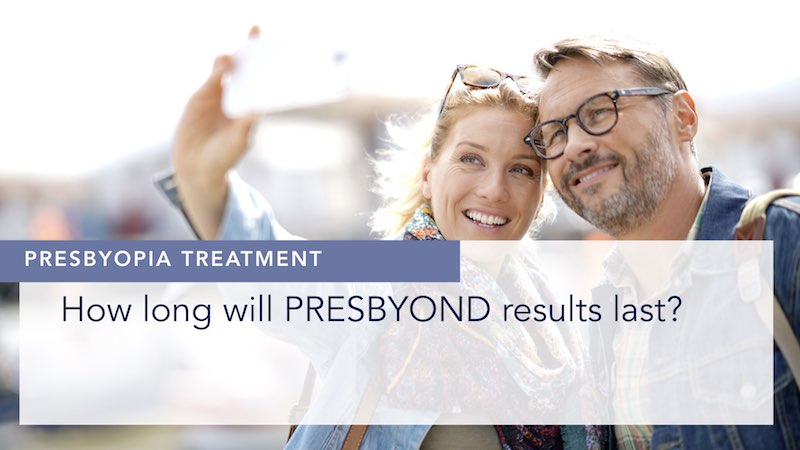Interview transcription:
We interviewed Alex Shortt to learn about the risks associated with PRESBYOND laser eye surgery.
Interviewer: You mentioned earlier about the risk profiles between different treatments, refractive lens exchange, perhaps having a slightly higher risk profile than PRESBYOND. What are, in fact, the risks of PRESBYOND, and how do they compare to the other procedures available?
Alex Shortt: The risk of losing vision, of going blind, with laser eye surgery is zero. There has never been a case reported in the medical literature of someone going blind in both eyes and not being able to see after laser. That applies to PRESBYOND LASIK as well.
Refractive lens exchange vs. PRESBYOND LASIK
Alex Shortt: The same cannot be said for refractive lens exchange. Refractive lens exchange carries a risk of a serious infection or serious bleeding inside the eye. Now, these are vanishingly rare – one in 10,000 cases will have a serious infection which permanently damages the vision, but the risk is not zero. Therefore, when you weigh up PRESBYOND LASIK versus refractive lens exchange, that is an important factor.
With refractive lens exchange, due to the accuracy of the treatment, the need for a second procedure is very unlikely, at 2%. That’s extremely low. What fine-tuning involves is effectively some laser eye surgery. If the focus of the eye after the lens exchange is not quite perfect, we can make a minor adjustment with the LASIK laser. The risk of that, again, is about 2%.
The risk of needing a fine-tuning procedure after PRESBYOND LASIK is certainly higher. Somewhere – depending on the complexity of the prescription – between one in ten to one in 20 patients will need a second procedure after PRESBYOND LASIK to fine-tune the vision and to balance the eyes. That’s an important fact that people need to understand.
Cataract surgery after PRESBYOND LASIK
Interviewer: If you’re going to have a refractive lens exchange and then potentially need it fine-tuned with laser, then why not have the laser in the first place?
Alex Shortt: That’s a reasonable point. But something which often makes patients choose a refractive lens exchange over a PRESBYOND LASIK, is the fact that if you have PRESBYOND LASIK, you will definitely need have cataract surgery at some stage in the future.
Interviewer: I see.
Alex Shortt: It’s essential which way around you want to do it. Do you want to have the quick, safe, simple and lower-cost option of PRESBYOND LASIK to get you ten,15 years without needing glasses, knowing that eventually, you will have cataract surgery? Or, do you want to have it the other way around, and have your lens replacement surgery knowing that there is a 2% chance of maybe needing a small adjustment with a laser?
It’s important to understand here, that when we’re talking about adjusting patients’ eyes with the laser after multifocal lens implants, that this is included in the costs of the initial procedure. It’s one treatment episode. It’s all done within a short period, and then no more treatment afterwards.
Interviewer: If you had a laser procedure, there would be no contraindication in the future to having a cataract surgery procedure?
Alex Shortt: Absolutely not. In the past, with older laser treatments, patients had laser eye surgery 20 years ago. When it comes to doing their cataract surgery, we have to be a little bit careful about which lens implant choices we use. I think if you’re in that situation, you really need a refractive surgeon involved in your care. This is because there are certain multifocal lens implants that are absolutely fine to use after laser eye surgery and others which shouldn’t be used. That’s a very technical thing.
Interviewer: Okay.
Alex Shortt: But certainly, everyone who’s had laser eye surgery absolutely can have cataract surgery.
Interviewer: That’s good to know.
If you’d like to know more about vision corrective surgery, book a free initial screening today and I will personally answer your questions. Alternatively, take our free suitability quiz to find out which treatment you are suitable for.

About the author
Mr Alex J. Shortt | Consultant Ophthalmic Surgeon
MB BCh MSc PhD FRCOphth PGDipCatRef
I’m Alex Shortt, a highly trained academic researcher and Consultant Ophthalmic Surgeon based in London’s famous Harley Street medical district. I trained and worked as a consultant for 14 years at London’s Moorfields Eye Hospital. I specialise in advanced technologies for correcting vision, including cataract surgery, implantable contact lenses and laser vision correction.






